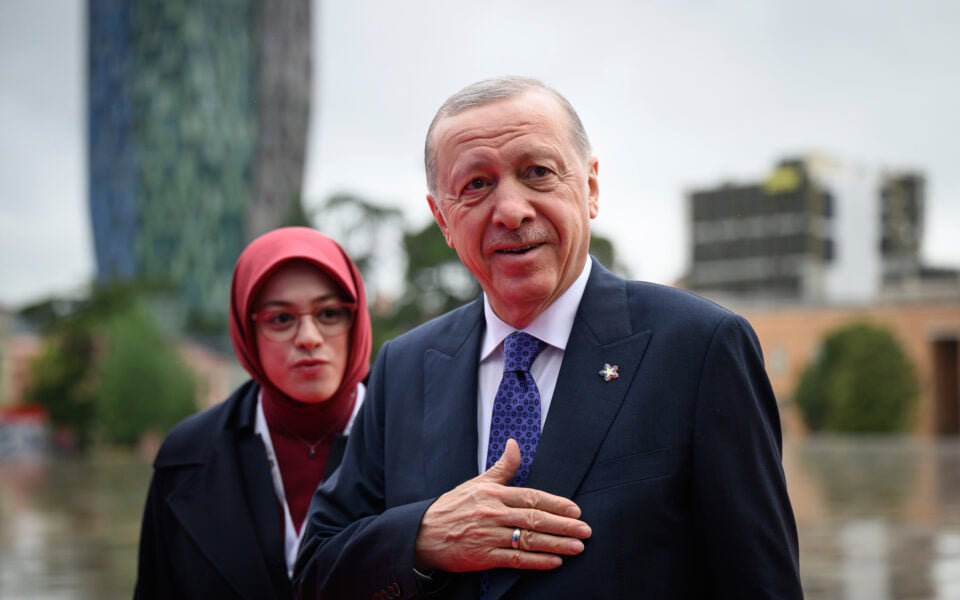
Turkey’s President Recep Erdogan arrives at the beginning of a summit where the leaders of 47 European countries and organizations will discuss security, defense and democratic standards, in Tirana, Friday. [AP]
Athens is working to limit Turkey’s involvement in the development of the European defense industry by helping shape the rules governing third-country participation.
The Greek Foreign Ministry has instructed ambassadors in EU capitals to formally raise the issue with relevant authorities – namely, the foreign and defense ministries – emphasizing that Greece has already demonstrated flexibility and that its concerns must be taken into account.
The matter is time-sensitive, as the Polish EU presidency aims to have the new SAFE (Security Action For Europe) regulation adopted – ideally – at the next General Affairs Council meeting on May 27. Greek diplomats have been told to highlight that Athens is seeking a viable solution to avoid a potential deadlock at that meeting.
So far, negotiations on the SAFE regulation have focused on the European Commission’s proposal to allow qualified majority voting for decisions concerning third-country participation in the EU defense industry. If adopted, this would mean Greece would no longer have the ability to veto future bilateral or multilateral EU agreements involving companies linked to candidate countries – Turkey among them.
The debate is particularly pressing because Turkey cannot currently sign a security and defense partnership agreement with the EU, as such deals require alignment with the EU’s Common Foreign and Security Policy (CFSP) – a requirement Turkey has met only 6% of. By comparison, Serbia meets about 60%. Additionally, such partnerships demand good neighborly relations with all EU member states – something the unresolved Cyprus issue automatically excludes in Turkey’s case.
Given the circumstances, Athens has few concrete options. It insists that unanimity must be preserved, even for joint ventures involving companies whose ultimate ownership lies outside the EU – such as Piaggio Aerospace or Baykar.
The strictest condition Athens seeks to enforce – publicly alluded to by Prime Minister Kyriakos Mitsotakis during his recent meeting with German Chancellor Friedrich Merz in Berlin – is that such collaborations should only proceed with countries that fully align with EU values. In other words, the criteria for what constitutes a “like-minded” state should be clearly and rigorously defined.
Negotiations with the United Kingdom were recently concluded, and a working formula was agreed upon. An official announcement may follow soon. Talks regarding Turkey, however, are expected to take longer. Meanwhile, Greece has aligned with France in pushing for a reduction in the allowed share of third-country participation in EU defense consortia – from the current 35% down to 15% – to ensure that EU resources remain within Europe.
Turkey, for its part, has significantly expanded its defense production capabilities and is now positioned to seek a share of Europe’s €800 billion rearmament effort.